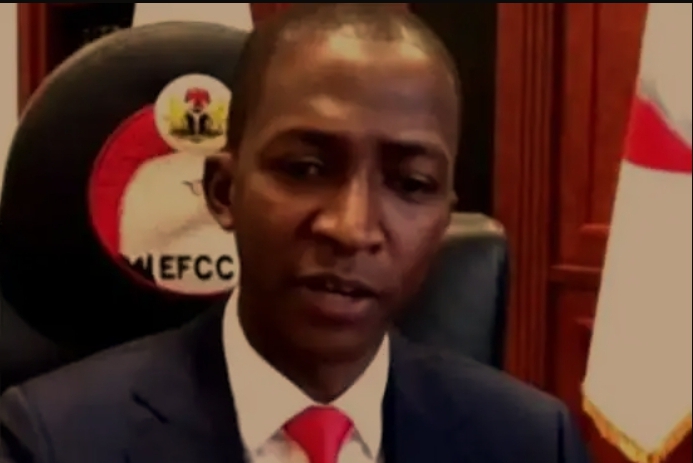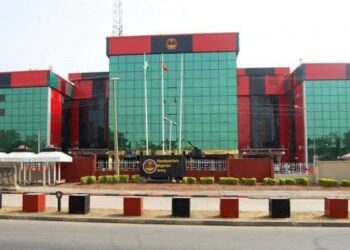In a significant development, a consortium of prominent Anti-Corruption Civil Society Organizations has expressed deep concern over the suspension and confinement of AbdulRasheed Bawa, the former Chair of the Economic and Financial Crimes Commission (EFCC).
These groups have raised pertinent issues, underlining the necessity for transparency and equity in this process.
AbdulRasheed Bawa, who previously spearheaded the operations of EFCC, was apprehended by the Department of State Services (DSS) on June 14th.
Of particular concern is the glaring absence of formal charges or clarifications regarding his detainment up to the present day.
These organizations vehemently denounce this opacity and the lack of public engagement in this matter, asserting that such actions undermine the core tenets of justice and due process cherished by the nation.
In an official press release, the coalition has drawn attention to allegations against Bawa, originating from politicians presently aligned with President Bola Ahmed Tinubu’s administration and political party.
While the coalition acknowledges the gravity of these accusations, it remains circumspect about their timing and potential political motivations.
It emphatically advocates that the pursuit of justice must not be overshadowed by partisan interests, calling for a meticulous and impartial investigation and prosecution of the suspended Chairman, in the event of substantiated serious wrongdoings.
Shining a light on a disconcerting trend within the realm of EFCC leadership, these groups have underscored that former chairpersons such as Nuhu Ribadu, Farida Waziri, Ibrahim Lamorde, and Ibrahim Magu have all faced contentious dismissals from their positions.
The prolonged detention of AbdulRasheed Bawa without a proper trial raises even graver apprehensions and concerns.
The coalition contends that this prolonged confinement, devoid of due process, not only tarnishes the integrity of the fight against corruption but also casts doubts upon the motivations behind these actions.
These organizations posit that this situation conveys an alarming message about the nation’s commitment to eradicating corruption.
It prompts contemplation on whether the anti-corruption crusade remains potent when its leaders are subjected to vague allegations and prolonged incarceration.
Moreover, this incident gives rise to questions about the fairness of the judicial system and its susceptibility to political influence.
Additionally, the coalition spotlights the recurring pattern where no EFCC chairman has completed their term without facing allegations from politicians and eventual ousting from office without formal charges.
This pattern of allegations arouses suspicions about the underlying motivations behind these claims and the potential implications for the legitimacy of anti-corruption endeavors.
The consortium, however, urges the relevant authorities to promptly address these concerns, conduct an open and just inquiry, and uphold the principles of justice and the rule of law that serve as the bedrock of the nation’s prosperity.
As the nation eagerly awaits further updates on this unfolding narrative, the Anti-Corruption Civil Society Organizations underscore the importance of meticulously examining the circumstances surrounding AbdulRasheed Bawa’s suspension and confinement.
The inquiries posed by the coalition resonate with public discourse, advocating for a comprehensive exploration of the matter.










